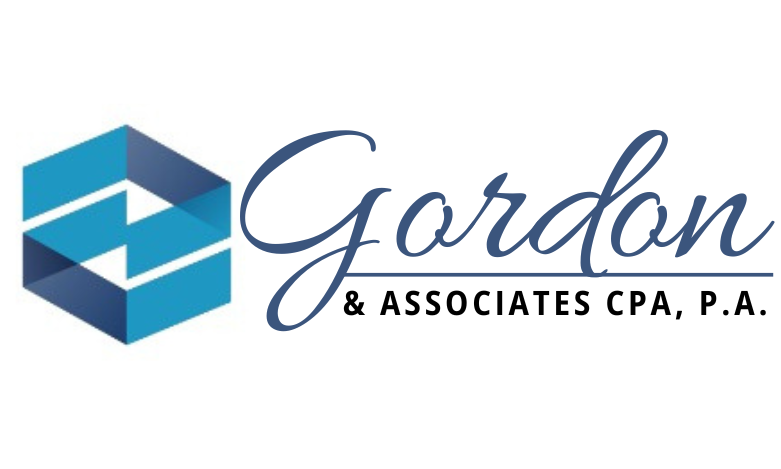Why Tax Planning is Critical for Small Business Success

For small business owners, staying on top of finances and taxes can be a daunting task, but it’s also one of the most critical aspects of running a successful business. Tax planning is not just about filing your taxes on time—it’s a strategic approach that helps reduce your tax burden, ensure compliance, and position your business for long-term growth. In this blog, we’ll discuss why tax planning is crucial for small business success and how it can impact your bottom line.
What is Tax Planning?
Tax planning is the process of evaluating and organizing your financial affairs in a way that minimizes your tax liabilities while ensuring you remain compliant with tax regulations. It involves analyzing your business’s income, expenses, investments, and operational structure to identify opportunities to legally reduce the amount of taxes you owe.
Effective tax planning requires an understanding of the various deductions, credits, and tax strategies available to businesses. With proper tax planning, small businesses can optimize their finances, improve cash flow, and reinvest savings into growth.
Key Reasons Why Tax Planning is Essential for Small Businesses
1. Minimizing Your Tax Liability
One of the primary reasons tax planning is so critical for small businesses is that it helps minimize your tax liability. The U.S. tax code is complex, but it also offers many deductions and credits that can significantly reduce your taxable income. Examples include:
- Depreciation deductions for business assets like equipment or vehicles.
- Home office deductions for business owners who work from home.
- Health insurance premium deductions for self-employed business owners.
By working with a CPA or tax advisor, you can identify all the deductions and credits your business qualifies for, ensuring that you only pay what you owe and nothing more.
2. Improved Cash Flow Management
Cash flow is the lifeblood of any small business, and effective tax planning helps improve your cash flow management. By projecting your tax liabilities ahead of time, you can set aside funds throughout the year to cover taxes. This avoids the shock of a large tax bill at the end of the year and ensures you have enough cash available to cover other business expenses.
Additionally, planning for quarterly estimated tax payments (required for most small businesses) helps avoid underpayment penalties and keeps your finances on track.
3. Reducing the Risk of Tax Audits
One of the biggest fears for small business owners is the prospect of a tax audit. While audits are relatively rare, they can be time-consuming, stressful, and costly. However, businesses that engage in thorough and strategic tax planning are less likely to trigger an audit. Proper tax planning ensures that your records are accurate, deductions are well-documented, and you remain compliant with tax laws, reducing the likelihood of discrepancies that may flag an audit.
4. Maximizing Tax-Saving Opportunities
Every year, tax laws change, and new opportunities for savings may become available. Without a well-thought-out tax plan, it’s easy to miss out on these opportunities. For instance, tax credits for hiring employees from specific groups, energy-efficient investments, or research and development can offer significant savings for small businesses.
With strategic tax planning, you can take advantage of current tax benefits and make proactive decisions to maximize your savings. Staying updated on tax changes allows you to adapt your strategy and optimize your tax position each year.
5. Facilitating Business Growth and Expansion
Tax planning plays a critical role in helping small businesses grow and expand. By minimizing your tax liabilities, you free up more capital to reinvest in your business. Whether you want to hire new employees, expand into new markets, or purchase equipment, tax savings can provide the financial flexibility you need to achieve your goals.
Additionally, certain tax strategies—like structuring your business as an LLC or S-Corp—can offer benefits that align with your growth plans. With proper tax planning, you can make informed decisions about the best business structure and tax treatment to support your expansion efforts.
6. Retirement and Succession Planning
A good tax plan isn’t just about the current tax year—it’s also about planning for the future. Whether you’re thinking about retirement or succession planning, having a clear tax strategy can ensure a smooth transition for you and your business. Tax planning allows you to maximize retirement contributions, such as through 401(k)s or SEP IRAs, which can reduce your taxable income while securing your financial future.
For business owners planning to pass their business on to the next generation or sell it, proper tax planning can reduce the tax burden on the sale or transfer and ensure the business remains financially healthy after the transition.
7. Ensuring Tax Compliance
Small businesses face a variety of tax obligations, including income tax, payroll tax, sales tax, and more. Failing to comply with tax regulations can result in costly penalties and interest. Tax planning helps ensure that you are always compliant with both federal and state tax laws, reducing the risk of late fees, penalties, or audits.
By planning ahead, you can ensure that you file your tax returns on time, accurately report your income, and make the necessary estimated tax payments throughout the year.
How to Implement Effective Tax Planning for Your Small Business
1. Work with a Tax Professional
The most effective way to implement tax planning is by working with a qualified CPA or tax advisor who understands your business and the tax laws. A tax professional can help you identify tax-saving opportunities, keep track of regulatory changes, and ensure your business remains compliant.
2. Keep Accurate and Organized Financial Records
Effective tax planning requires accurate and up-to-date financial records. Invest in good bookkeeping practices or hire a professional bookkeeper to ensure your records are well-organized. This will make it easier to track your income and expenses, identify deductions, and prepare for tax season.
3. Plan for the Long-Term
Tax planning isn’t just about minimizing your taxes for this year—it’s also about thinking ahead. Whether you’re planning for business expansion, retirement, or passing your business on to your heirs, having a long-term tax strategy will help you achieve your financial goals and avoid tax pitfalls in the future.
4. Revisit Your Tax Plan Regularly
Tax planning is not a one-time event. It should be revisited regularly to account for changes in tax laws, business growth, or changes in your personal or business goals. Make it a habit to review your tax plan at least once a year and adjust your strategy as needed.
Tax planning is an essential component of running a successful small business. By minimizing your tax liabilities, optimizing cash flow, ensuring compliance, and leveraging tax-saving opportunities, you can keep more of your hard-earned money and reinvest it into growing your business.
At Gordon & Associates CPA, P.A., we specialize in tax planning for small businesses. Our team of experts can help you develop a tax strategy that fits your business’s unique needs and ensures long-term success. Contact us today to learn how we can help you with your tax planning needs.
Subscribe to our newsletter to receive our latest blog directly to your inbox.
- Business Financial Management
- Regulations and Compliance
- Tax Planning and Compliance
- Tax Planning and Strategies
- 2024 Tax Rates: Key Changes and What They Mean for You
- Bonus Depreciation vs. Section 179 Deductions in 2024: Maximizing Tax Benefits for Your Business
- Conducting a Comprehensive Year-End Financial Review: A Guide for Small Business Owners
- Converting an LLC to a C-Corporation and the QSBS Reasons to Do It
- Cost Segregation Strategies: A Guide for Real Estate Investors
- Developing an Effective Budget for the New Year: A Step-by-Step Guide for Small Business Owners







